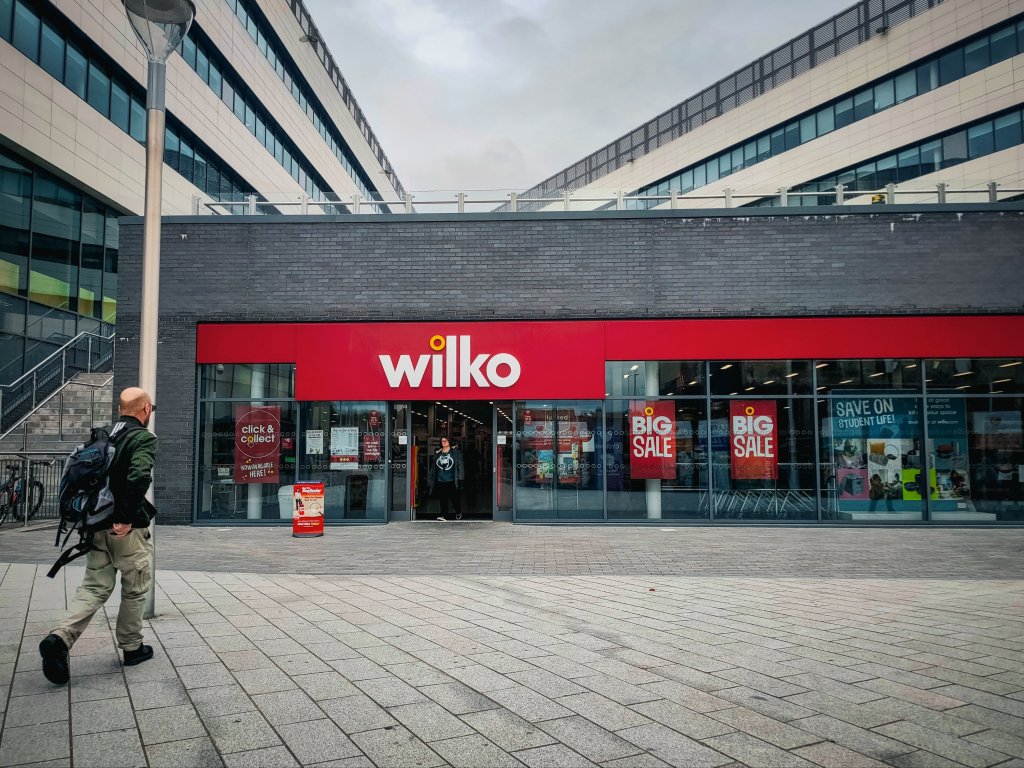Wilko has today announced that they have entered into administration which has put 12,000 jobs at risk.
Sadly Wilko’s have found themselves unable to find emergency investment which could have saved 400 shops across the UK.
Sadly it’s likely to be the end for the business which has been trading since 1930.
In an interview conducted by BBC News the firm’s boss, Mark Jackson, has been quoted as saying ‘management had “left no stone unturned” in its attempts to save the company.
“But we must concede that with regret, we’ve no choice but to take the difficult decision to enter into administration,” he said.
What happens next?
If Wilkos fails to find another business to buy any of the shops or parts of the business out of administration they will become the biggest High Street casualty this year.
It’s expected that Administrators are to be appointed later on Thursday (today), however it will continue to trade as normal for now.
GMB union told BBC News that the collapse was “entirely avoidable”.
National officer Nadine Houghton said: “GMB has been told time and time again how warnings were made that Wilko was in a prime position to capitalise on the growing bargain retailer market, but simply failed to grasp this opportunity.”
Although the business has been struggling for some time, the depths of its problems emerged last week when it announced its intention to appoint administrators.
This gave Wilko 10 days to secure a rescue. However, it was unable to strike a deal within that timeframe.
Wilkos have had a significant level of interest which had included indicative offers that would have met all their financial criteria to recapitalise the business
But without the surety of being able to complete the deal within the necessary time frame and given the cash position, they’ve been left with no choice but to take this upsetting action.
Why is this happening?
Wilko has been struggling with sharp losses and a cash shortage for a long time now.
They had already borrowed £40m from Hilco which is a business restructuring specialist. The company had previously cut the amount of employees, had overhauled it’s leadership team and sold off a distribution centre which was vital to the running of the business.
Whilst most Wilko’s stores are in High Street locations this has proven to be very costly for them as many, not all customers have moved to shop at bigger retail parks and out-of-town locations.
The pandemic also changed the shopping habits of many combined with the cost of living crisis which is having a massive impact on high street shopping.
Sadly Wilko’s has also faced strong competition from rivals such as B&M and Home Bargains as shoppers are now seeking out bargains.
Sadly Wilko’s failed to adapt their business to the changing shopping habits of their customers which is one of the reasons why the business has entered into administration.
Richard Lim, chief executive at Retail Economics a retail consultancy commented saying that a combination of rising costs, lower customer demand and fierce competition is what ultimately pushed Wilko to “breaking point”.
“Against the backdrop of seismic shifts in consumer behaviour and the intense pressure on margins, the business was too slow to react to these mounting challenges and paid the ultimate price,” he said.
The company, founded in Leicester, is still owned by the same Wilkinson family..
When Woolworths ceased trading in 2008 they were quick to fill the gaps in the high street that were left.
Why am I writing about this in my blog?
Wilko’s has long been a staple of the high street, and is still used by many to buy essential household products. It’s accessible for those without cars and are usually easily accessed by public transport.
Retail parks are catered towards car drivers and aren’t easy for non car drivers to access.
Many of the 12,000 employees have worked there for many years and hold their work colleagues in great regard. It’s going to be an awful shock for them when they enter the world of unemployment and the cruel DWP system.
The DWP won’t have any sympathy for them and the stress that they put upon claimants is unbelievably cruel, forcing many to rely upon food banks to survive.
My thoughts and sympathies are with all Wilkos employees and their families, including their customers that relied upon the company for their shopping requirements.
It’s indeed a sad day for the high street, one that won’t be forgotten by many.








